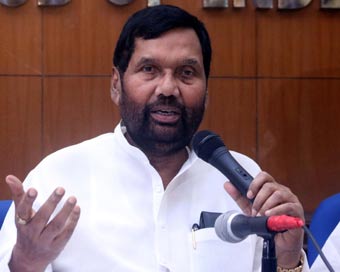 PM Modi visit USA
PM Modi visit USA Only the mirror in my washroom and phone gallery see the crazy me : Sara Khan
Only the mirror in my washroom and phone gallery see the crazy me : Sara Khan Karnataka rain fury: Photos of flooded streets, uprooted trees
Karnataka rain fury: Photos of flooded streets, uprooted trees Cannes 2022: Deepika Padukone stuns at the French Riviera in Sabyasachi outfit
Cannes 2022: Deepika Padukone stuns at the French Riviera in Sabyasachi outfit Ranbir Kapoor And Alia Bhatt's Wedding Pics - Sealed With A Kiss
Ranbir Kapoor And Alia Bhatt's Wedding Pics - Sealed With A Kiss Oscars 2022: Every Academy Award Winner
Oscars 2022: Every Academy Award Winner Shane Warne (1969-2022): Australian cricket legend's life in pictures
Shane Warne (1969-2022): Australian cricket legend's life in pictures Photos: What Russia's invasion of Ukraine looks like on the ground
Photos: What Russia's invasion of Ukraine looks like on the ground Lata Mangeshkar (1929-2022): A pictorial tribute to the 'Nightingale of India'
Lata Mangeshkar (1929-2022): A pictorial tribute to the 'Nightingale of India' PM Modi unveils 216-feet tall Statue of Equality in Hyderabad (PHOTOS)
PM Modi unveils 216-feet tall Statue of Equality in Hyderabad (PHOTOS)The Badminton Association of India (BAI) has announced a 14-member-strong India squad for
- Men’s Sr Hockey Nationals to be played in division-based format from April 4
- Mensik denies Djokovic 100th title in Miami final
- KIPG: Son of a vegetable vendor, Bihar’s Jhandu Kumar eyes Worlds, 2028 Paralympics
- Hardik Singh credits hard work and team unity for receiving HI Midfielder of the Year award
- Djokovic, Alcaraz land in same half of Miami draw
Tap water undrinkable in Delhi, 13 state capitals: Paswan Last Updated : 16 Nov 2019 04:51:24 PM IST 
Union Minister for Consumer Affairs, Food and Public Distribution Ram Vilas Paswan Releasing a study on quality of piped drinking water being supplied in 21 cities across the country, Union Minister for Consumer Affairs, Food and Public Distribution Ram Vilas Paswan said on Saturday that in Delhi and 13 state capitals, tap water is "undrinkable".
The only metropolitan city where people can drink tap water safely is Mumbai as all its samples complied with Indian standards, the minister said.
"Samples were taken from 11 places in Delhi. All the samples have failed, But all samples of Mumbai are clear. Tap water of Mumbai is drinkable," said the Minister.
"None of the samples drawn from 13 of the state capitals -- Chandigarh, Thiruvananthapuram, Patna, Bhopal, Guwahati, Bengaluru, Gandhi Nagar, Lucknow, Jammu, Jaipur, Dehradun, Chennai and Kolkata -- complied with the requirements of the Indian Standard," said Paswan.
The minister said he has written to state governments asking them to clarify what help his government can provide to make tap water drinkable. "People should get pure water from the tap. There should be no water that causes diseases," he said.
The samples were taken from the capital city of 20 states apart from the national capital. "It was done in keeping with the objectives of the Jal Jeevan Mission of Prime Minister Narendra Modi," the minister said.
The minister said in the first phase, the samples of drinking water were drawn from various locations across Delhi and in the second phase, samples were drawn from 20 state capitals, and sent for testing as per Indian Standard.
In Europe and other developed countries, it is clearly written whether tap water is potable or not. In India, there is no such certification.
On the directions of the ministry, the Bureau of Indian Standards (BIS), a national body that makes quality standards for products and services, had decided to undertake a study of the quality of piped drinking water being supplied in the country. It has also framed quality standard for tap water.
The Indian Standard prescribes 48 parameters including radioactive substance but in the current study, radioactive substance test was excluded. Also free residual chlorine has been excluded from this exercise since it is applicable only when water is chlorinated and a minimum limit has been prescribed for it, the ministry said.
Testing was conducted for Organoleptic and Physical Tests, chemical test, toxic substances and bacteriological tests in the first stage.
"Test reports have been received for these tests for all the samples drawn. A vast majority of the samples have failed to comply with the requirements of Indian Standard in one or more parameters," the ministry said in a statement.
In the city of Delhi, all the 11 samples drawn did not comply with the requirements of the Indian Standard. The samples failed in several of the parameters. All the 10 samples drawn from Mumbai were found to comply with the requirements of the Indian Standard.
In the cities of Hyderabad, Bhubaneshwar, Ranchi, Raipur, Amravati and Shimla, one or more samples did not comply with the requirements of the Indian Standard.
"In the third phase, samples from capital cities of northeastern States and Smart Cities identified by Ministry of Housing and Urban Affairs have been drawn and are under tests. The results of these are expected by January 15, 2020, the ministry said.
In the fourth phase, it is proposed to test samples drawn from all the district headquarters of the country and their testing is planned to be completed by August 15, 2020.IANS New Delhi For Latest Updates Please-
Join us on
Follow us on








172.31.16.186







